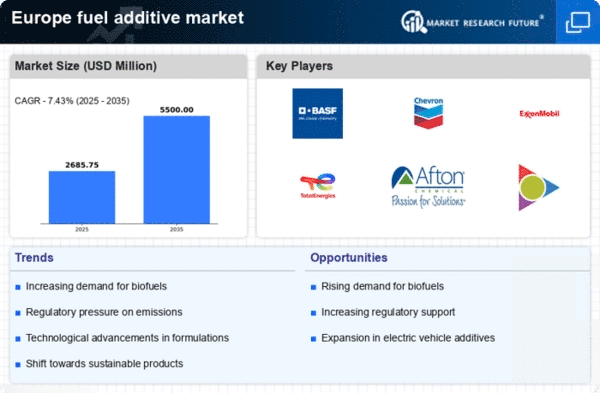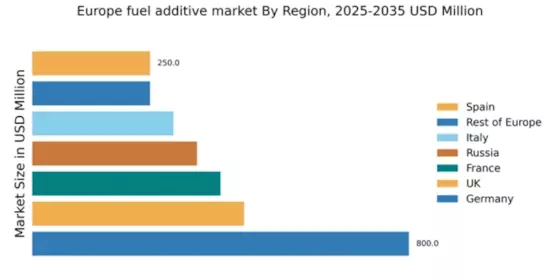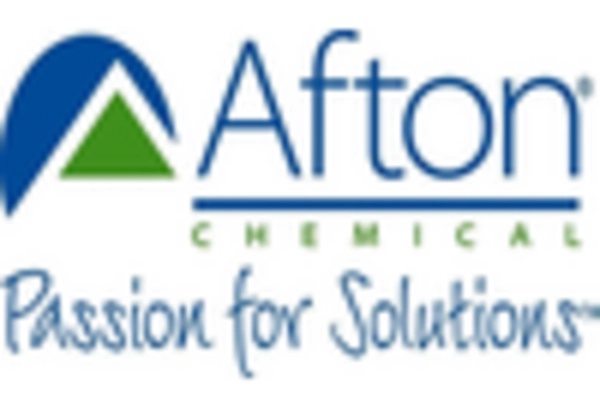Regulatory Framework Enhancements
The evolving regulatory landscape in Europe plays a pivotal role in shaping the fuel additive market. Stricter emissions standards and environmental regulations compel manufacturers to innovate and develop advanced fuel additives that comply with these requirements. For instance, the European Union's commitment to reducing greenhouse gas emissions by at least 55% by 2030 necessitates the adoption of cleaner fuels. This regulatory pressure is likely to drive the demand for fuel additives that enhance fuel efficiency and reduce harmful emissions. As a result, the fuel additive market is witnessing a surge in research and development activities aimed at creating compliant products, which could potentially lead to a market growth rate of around 6% annually over the next few years.
Rising Demand for High-Performance Fuels
The increasing consumer preference for high-performance fuels is a key driver for the fuel additive market in Europe. As automotive technology advances, consumers are becoming more aware of the benefits of using premium fuels that contain specialized additives. These additives improve engine performance, fuel economy, and reduce emissions, aligning with the growing environmental consciousness among consumers. Market data indicates that the demand for high-octane fuels has risen by 10% in the past year, reflecting a shift towards more efficient fuel options. This trend is likely to continue, further propelling the growth of the fuel additive market as manufacturers respond to consumer preferences.
Economic Growth and Automotive Sector Expansion
The economic recovery in Europe is fostering growth in the automotive sector, which in turn is positively impacting the fuel additive market. As disposable incomes rise, consumers are more inclined to invest in vehicles that require high-quality fuels and additives. The automotive sector's expansion, particularly in electric and hybrid vehicles, is also driving the need for specialized fuel additives that enhance performance and efficiency. Recent reports suggest that the automotive market in Europe is expected to grow by 4% annually, creating a favorable environment for fuel additive manufacturers to innovate and expand their product offerings.
Environmental Awareness and Consumer Preferences
Growing environmental awareness among consumers is significantly influencing the fuel additive market in Europe. As individuals become more conscious of their carbon footprint, there is an increasing demand for fuel additives that promote sustainability and reduce emissions. This shift in consumer preferences is prompting manufacturers to develop eco-friendly additives that align with these values. Market analysis indicates that products marketed as environmentally friendly have seen a sales increase of 15% over the past year. This trend suggests that the fuel additive market will continue to evolve, with a focus on sustainability and reduced environmental impact, potentially leading to a market growth of around 7% in the coming years.
Technological Advancements in Additive Formulation
Technological innovations in the formulation of fuel additives are significantly influencing the fuel additive market in Europe. The introduction of advanced chemical engineering techniques allows for the development of more effective and efficient additives. These innovations not only improve fuel performance but also enhance engine cleanliness and longevity. For example, the integration of nanotechnology in additive formulations has shown promising results in reducing friction and wear in engines. This trend is expected to contribute to a projected market growth of approximately 5% annually, as consumers increasingly seek high-performance fuels that incorporate these advanced additives.


















